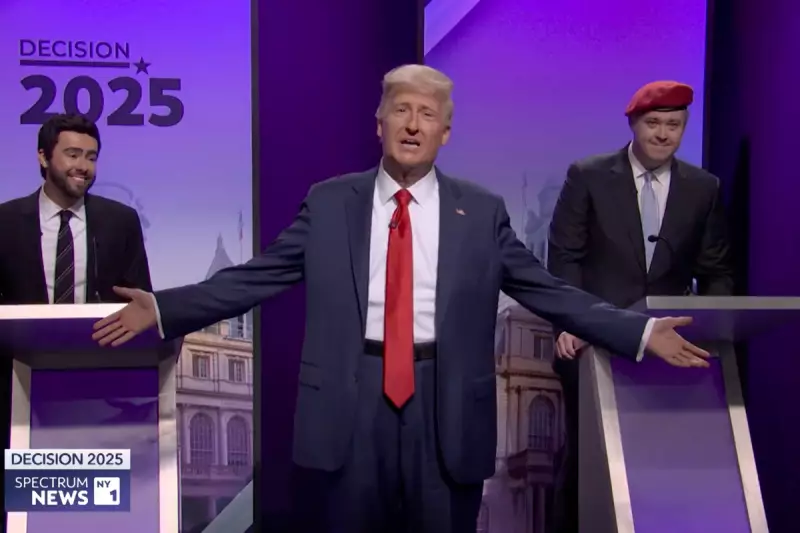
Saturday Night Live returned with biting political commentary this weekend, taking direct aim at Donald Trump's performance in a recent mayoral debate that captured national attention.
The sketch featured James Austin Johnson delivering his now-famous Trump impersonation, capturing the former president's distinctive mannerisms and speech patterns with uncanny accuracy. The cold open focused on Trump's debate tactics, including his tendency to interrupt opponents and make controversial statements that dominated post-debate discussions.
Spotlight on Debate Dynamics
SNL's writers zeroed in on the most talked-about moments from the actual debate, exaggerating Trump's approach for comedic effect while highlighting genuine concerns about debate decorum. The sketch portrayed Trump's interactions with moderators and opponents, emphasizing the chaotic nature of the exchange that left many political commentators questioning the quality of political discourse.
Johnson's Masterful Characterization
James Austin Johnson continues to solidify his position as one of SNL's most valuable cast members through his Trump portrayal. His performance goes beyond simple imitation, capturing the former president's unique cadence, physicality, and rhetorical style that has become familiar to viewers worldwide.
The sketch arrives during a crucial period in American politics, as the nation prepares for upcoming elections and debates continue to shape public perception of candidates. SNL's decision to feature Trump so prominently in their season premiere underscores his enduring presence in the political landscape.
Audience Reaction and Impact
Early social media response suggests the sketch resonated with viewers, particularly those who followed the original debate coverage. Many praised the show's writers for their sharp political observations and Johnson's commitment to the character.
Political satire has long been a cornerstone of SNL's identity, and this latest Trump-focused sketch demonstrates the show's continued relevance in commenting on American political theatre. As the election cycle intensifies, viewers can likely expect more political commentary from the long-running comedy institution.





